By Amanda Wang
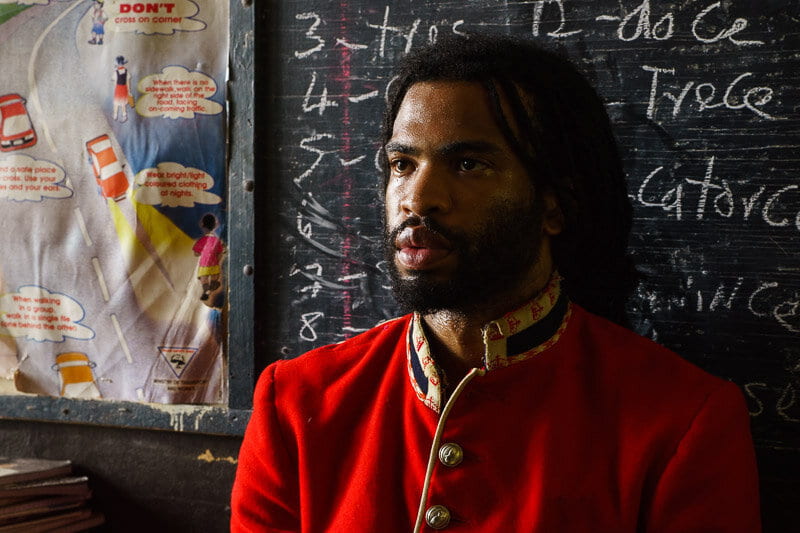
A look at peace through the work and perspective of Atlanta based trans-disciplinary artist, Cosmo Whyte
About the speaker
Cosmo Whyte is a trans-disciplinary artist and teacher with an immersive body of work expressed predominantly with drawings, performances and sculptures. Born in Jamaica and currently Atlanta-based, Cosmo heavily examines themes of migration, colonization and identity, particularly the disruptions that occur within these concepts. His creative process begins with the interrogation of his own privileges and identities which he then uses “as [an] entry point into collective political interrogations.” Insightful and introspective, Cosmo shares his own experience and philosophy guiding us to our own entry point to interrogations of peace and its many layers.
Cosmo Whyte as a peacemaker
Inspired by the works and philosophies of James Baldwin, Cosmo approaches his work with the intent of expressing criticism from a place of love. Keeping figures such as James Baldwin and Stuart Hall in mind, Cosmo’s heavy examination of the true self versus the labels society places on the individual serves as a sobering reminder to the anguish of history and barriers to future peace. His multi-sensory exhibitions humanizes, empowers, and pays tribute to those abused by power. Simultaneously pieces fondly and proudly pay homage to his home Jamaica, creating a soft nostalgia for a time and place you’ve never even experienced. This combination with the hard and the soft showcases the true complexities in loving something that doesn’t provide you peace and security.
Peace in relation to migration: Shattering and Grounding
Part One: Shattering
Migration is essentially a disruptive force. Willingly or unwillingly, the migrator is displaced from certain norms, cues, feelings, cultures, and people and re-placed in an alien environment. Meena Alexander, an influential writer to Cosmo Whyte, writes in the opening of The Shock of Arrival,
“The shock of arrival is multifold — what was born in the mind is jarred, tossed into new shapes, an exciting exfoliation of sense. What we were in that other life, is shattered open”
— Cosmo Whyte
Cosmo Whyte provokes deep analysis of this “shattering” in many of his pieces. One example is a multi part sculptural series “The Enigma of Arrival”:
The Enigma of Arrival creates sharp juxtaposition and evokes strong themes of jaggedness and fragmentation.
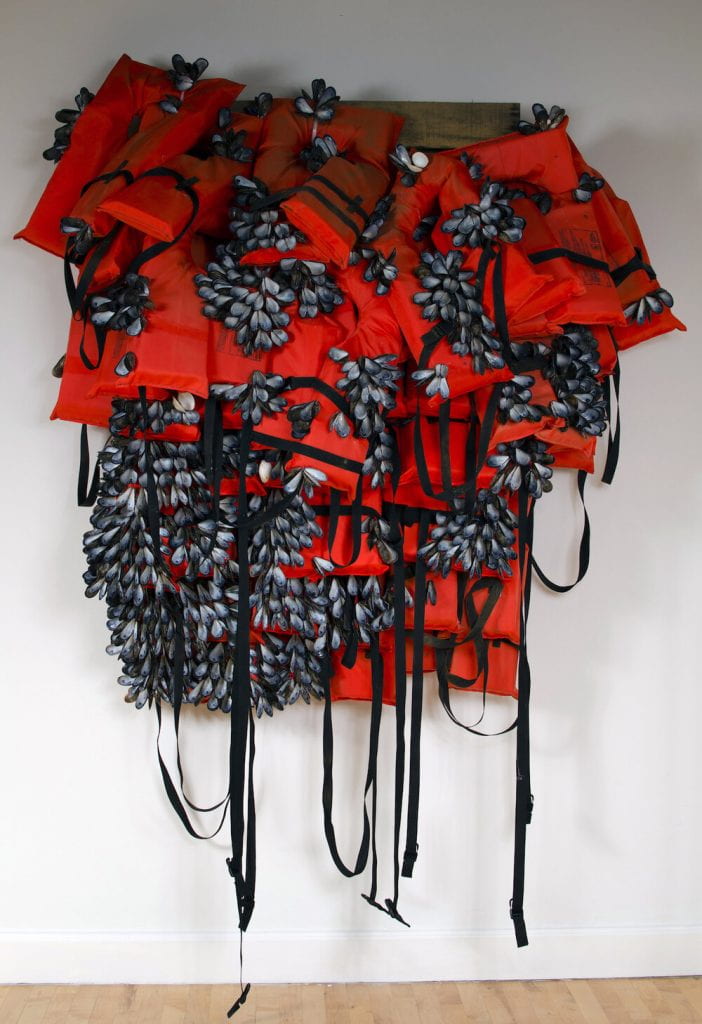
Section 1: Guess Who’s Coming to Dinner
Floating and Sinking: the floating life jackets being weighed down by mussel shells calls to mind migration by boat and the millions lost in the Transatlantic Slave Trade
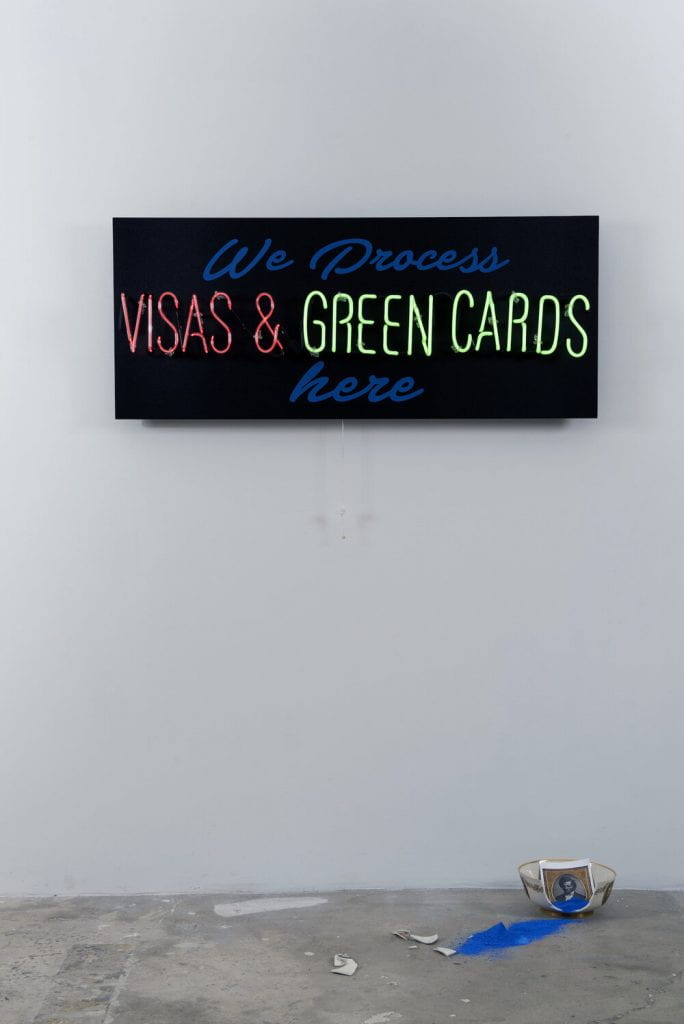
Section 2: Red, Green, Blue and Black
American and Pan-African: the commonplace neon sign calls to mind the American immigrant struggle while also bearing the Pan-African colors (red, green, black). The shattered porcelain bowl below holds the scattered indigo pigment as well as a picture of Frederick Douglass
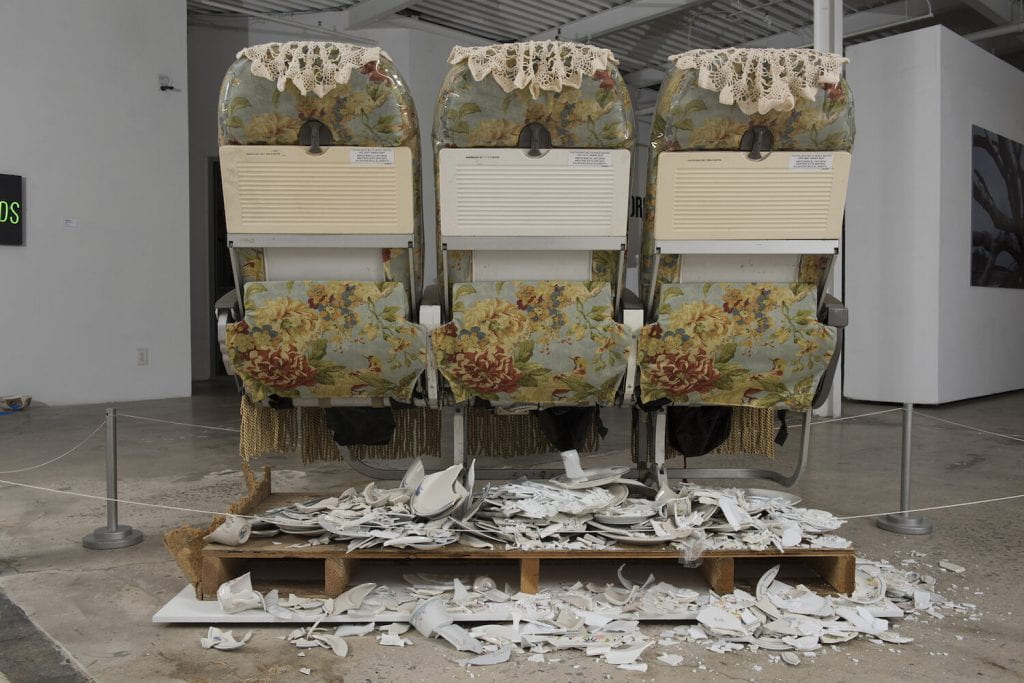
Section 3: Carry On
Home and Migration: the economy class airplane seats donned with floral patterns upholstery and broken china calls to mind the raw emotions that come with leaving your home, the “shattering” of your previous life.
Examples of other pieces that touch upon migration and multiculturalism include (left to right | top to bottom): “Salted Fish and Gold, Brixton 2019”; “The Expat”; “Sole Imperial”; “Promis(ed) Land Version 3”; “Punch Drunk Love”; and “We Buy Gold”
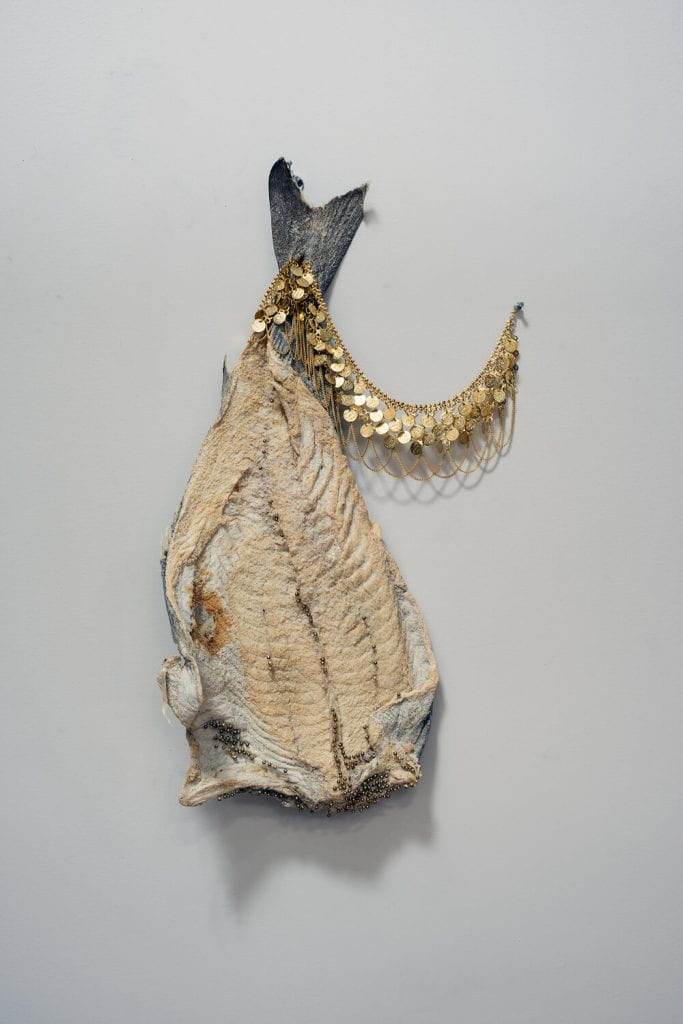
Salted Fish and Gold, Brixton 2019 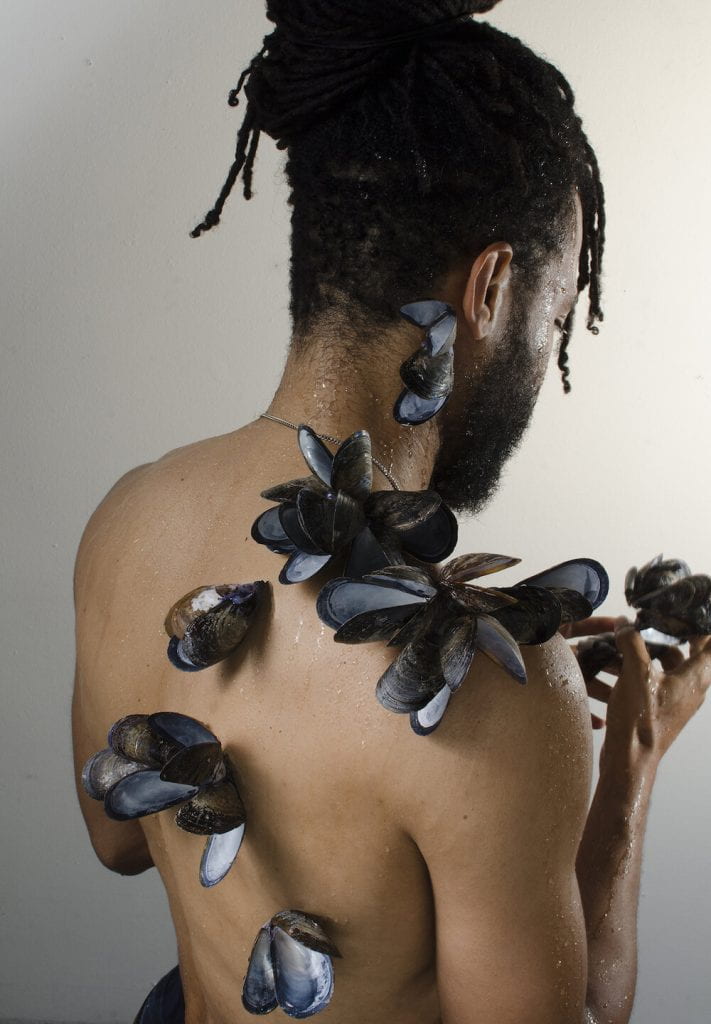
The Expat 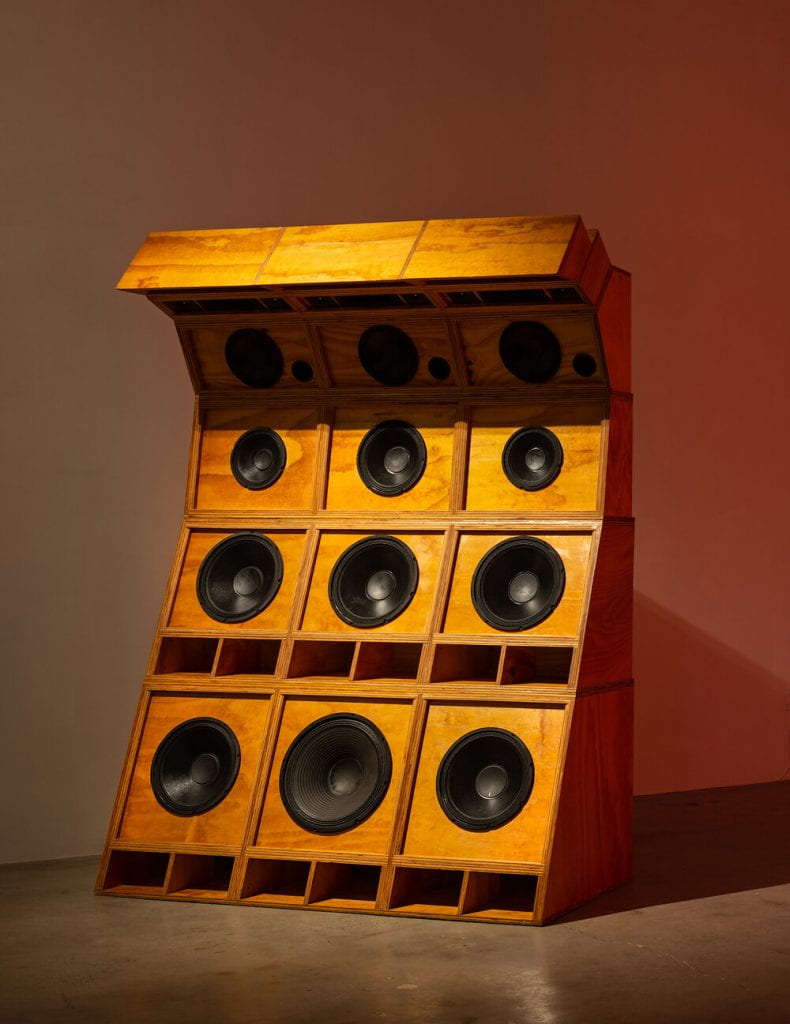
Sole Imperial 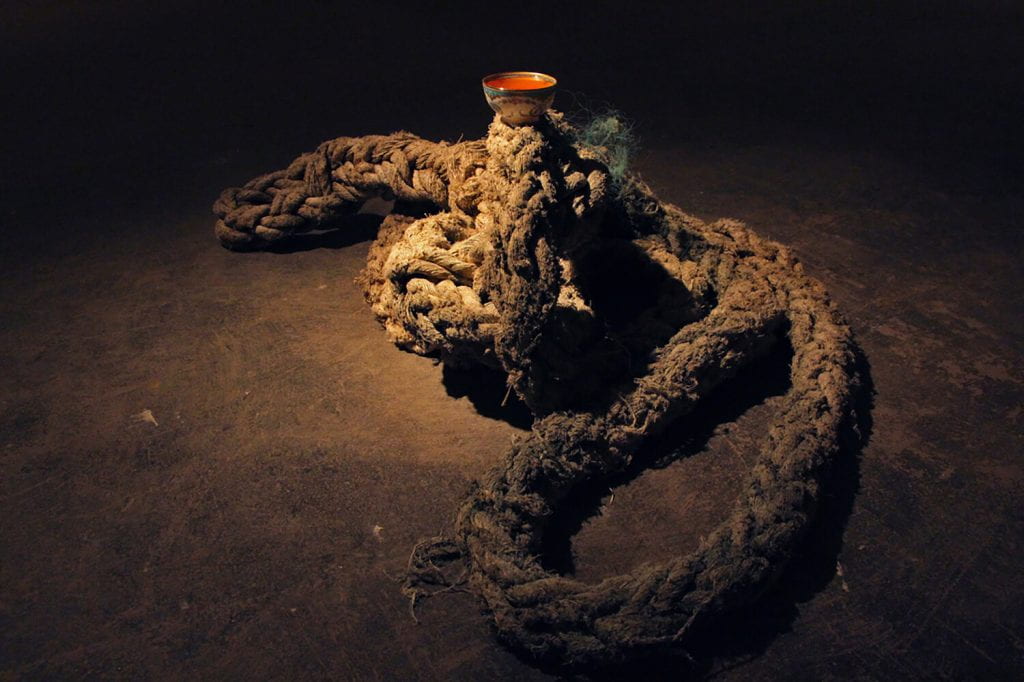
Promis(ed) Land Version 3 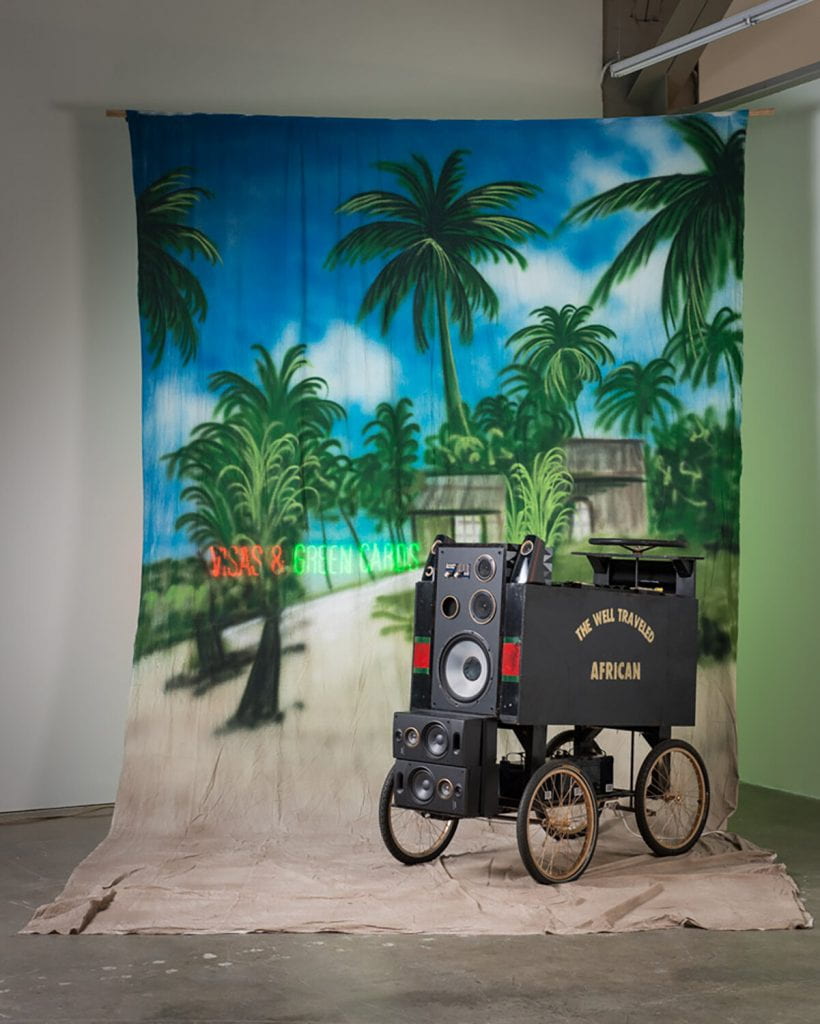
Punch Drunk Love 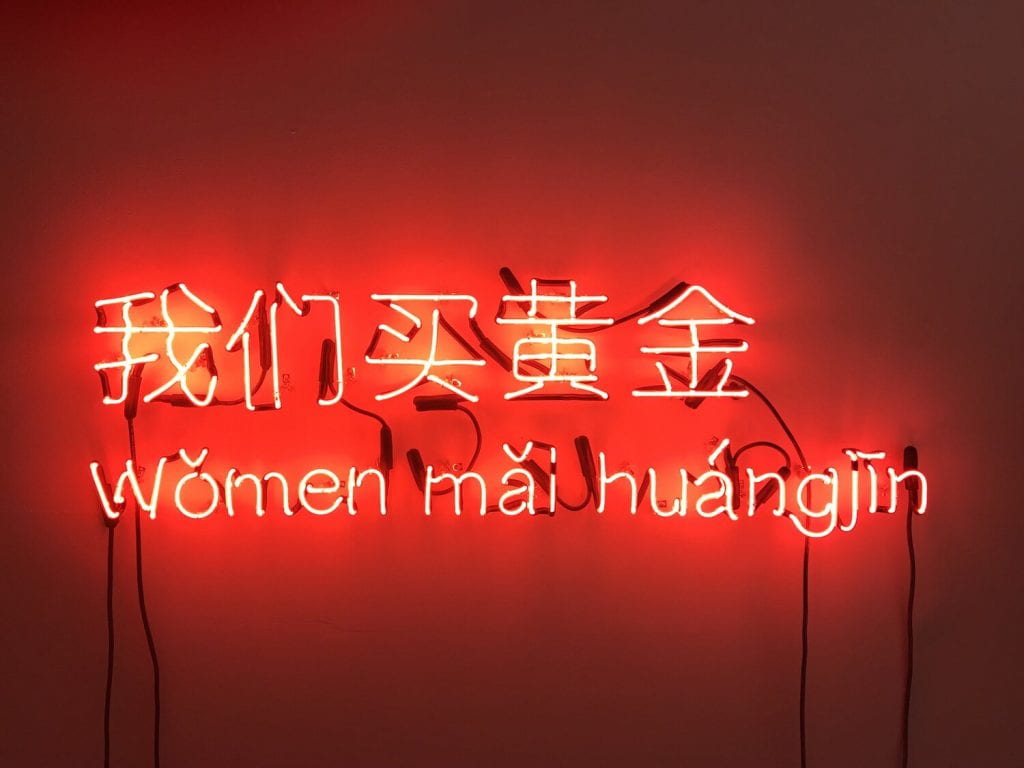
We Buy Gold
Part Two: Grounding
“I view the notion of peace and cultural identity as not necessarily being location specific”
Cosmo Whyte
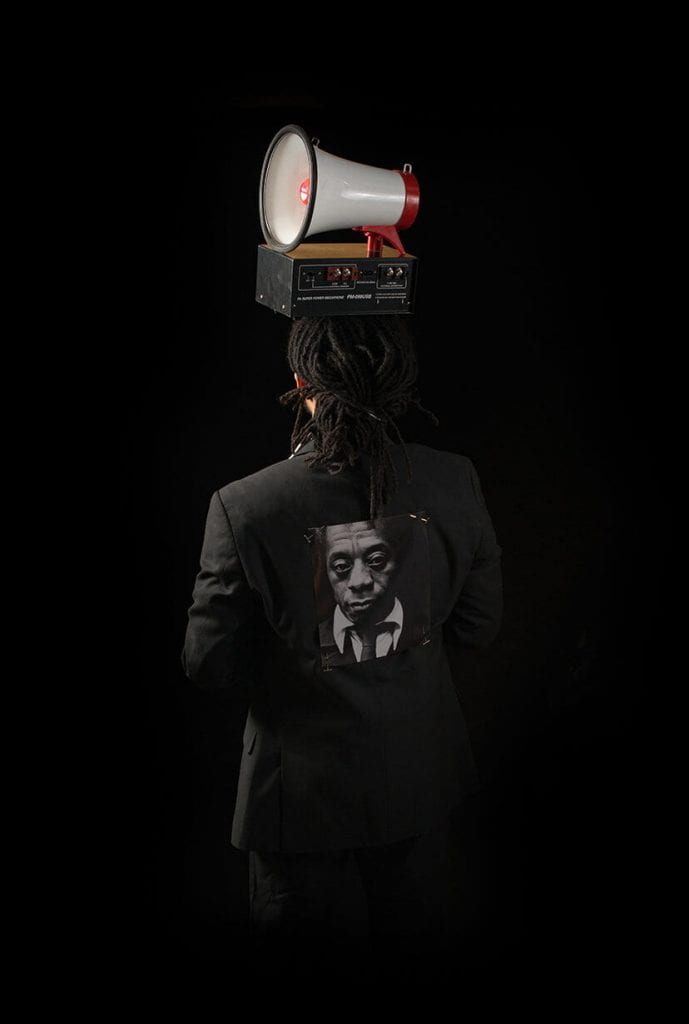
Image: Stranger Than the Village
Cosmo moved to America at age 19 for his Bachelor in Fine Arts at Bennington College. Having lived the prior nineteen years entirely in Jamaica, Cosmo expresses the jarring experience of having a fully formed self-identity and image and then living somewhere else where different labels and identities you don’t consider a part of you are mapped onto your body.
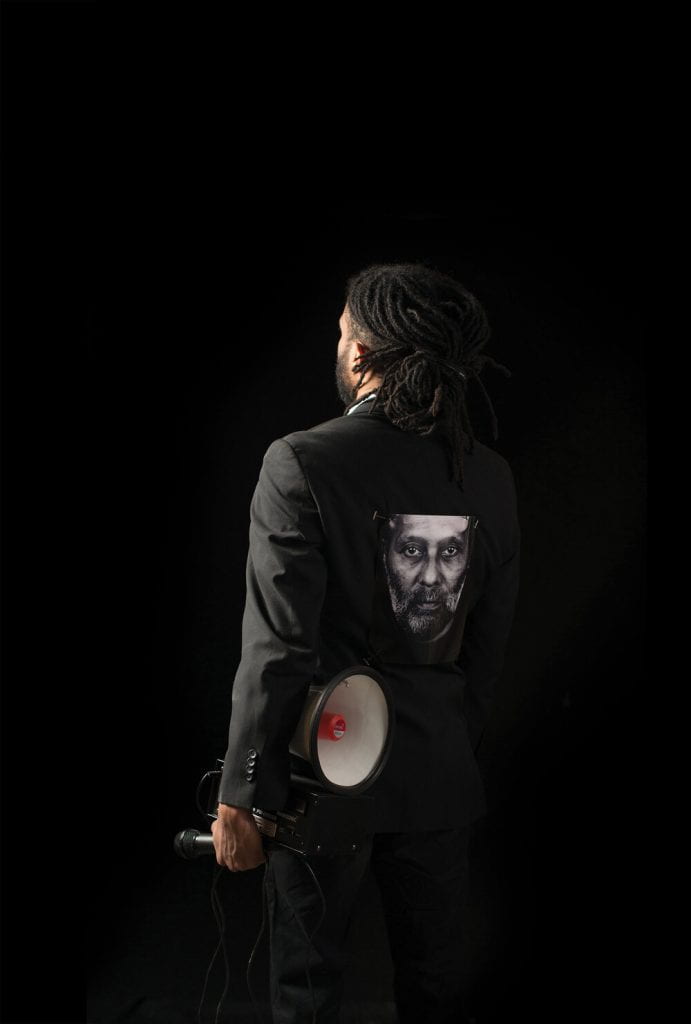
Image: Village Crier
With the shattering of identity that comes with migration, Cosmo cites the necessity of an internal grounding, a sort of ethical compass, to “stay on course.” Especially with philosophies of identity, Stuart Hall has been an influential figure in Cosmo’s work and personal philosophy.
A brilliant intellectual coming out of Jamaica when it was still a British colony, Stuart Hall’s theory of cultural identity states that our identities are never fully formed and are constantly in the process of becoming something; we’re never finished as identity is always a negotiation between people, place, and time. In a society with infinite labels, it is maybe most important to just be, and to look internally, rather than externally, for confirmation and acceptance of identity.
Peace in relation to time
Part One: The Past
With much of his work examining postcolonial worlds, Cosmo shows extreme sensitivity to relationships between times. This sensitivity partially stems from growing up in Jamaica, a country with strong presences of past, present a future with juxtapositions such as structures from times of colonization/slavery next to modern skyscrapers. So much of our reality is shaped by past grievances and actions leaving us the question how we should allow the past to affect our present and future. Cosmo touches upon this complex dynamic in his performance piece “YOU Know WE Can’t Swim Right?”
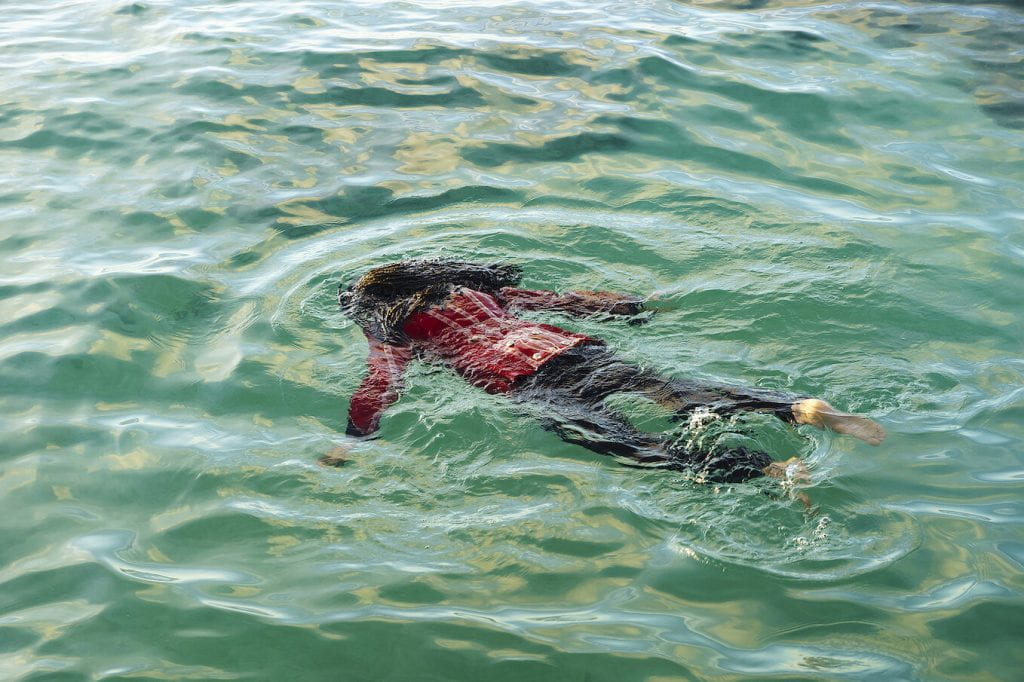
The title is a reference to a stereotype that black people can’t swim, a reality of our present. The red coat Cosmo is wearing is in references to the British colonization of Jamaica, a remnant of the past. The photo was deliberately taken in his home country of Jamaica at a particular time of day so that the water was a turquoise color creating the pan-African colors (red, green, and black), perhaps a hope for the future.
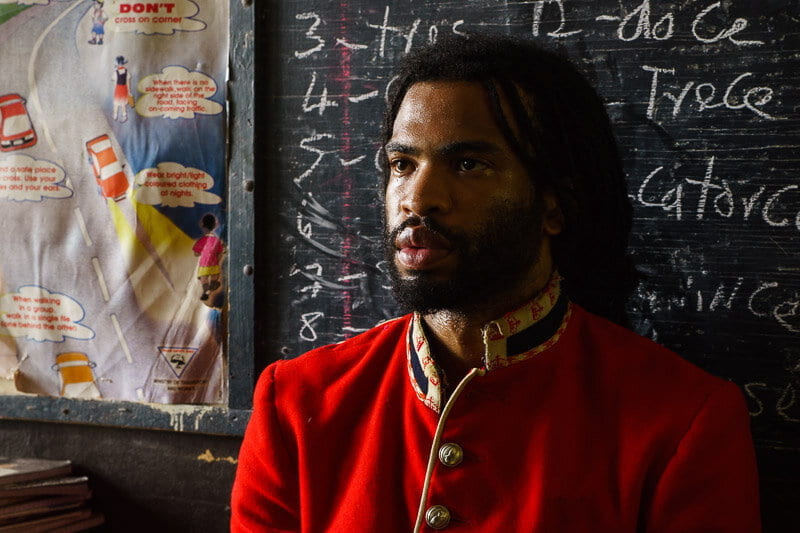
Part Two: The Future
Cosmo’s personal definition peace on a large political scale:
“The freedom from living in a society where black lives are constantly in peril and devalued. To not have to walk in constant fear of all these things mapped onto your body”
Cosmo Whyte
With this personal definition in mind, Cosmo states that one of the biggest barriers that keep from peace is our current imagination. In examining the larger political issues, one must be very self-reflexive, break yourself apart, and put yourself back together. Cosmo states that in the process of breaking yourself apart it is important to be very critical and let go of the various privileges you embody; only then can you move beyond the safety nets and become open to something completely new. A difficult practice, he heavily emphasizes this philosophy to his students, and constantly practices it himself.
“We have to think beyond the system that we’re living in”
Cosmo Whyte
Despite the current tumultuous times as well as the unceasing conflicts of history, Cosmo expresses hope for peace in the future. Having taught for most of his adult life at various education levels, Cosmo expresses optimism in his many experiences as a teacher. He summarizes this hope by describing the openness of his students and their movement to reject normative aspects of previous generations.
Note from the reporter
Verbal language unknowingly creates various prejudices and structures that speakers will almost never become aware of. Art in its many mediums has the ability to spark an immense spectrum of important conversations. In our productivity-obsessed society, people are moving faster and faster from one piece of media to the next disabling the contemplation some pieces of art require. With this podcast episode I hope to slow down audiences and bring deliberation to some worthwhile concepts.
– Amanda Wang